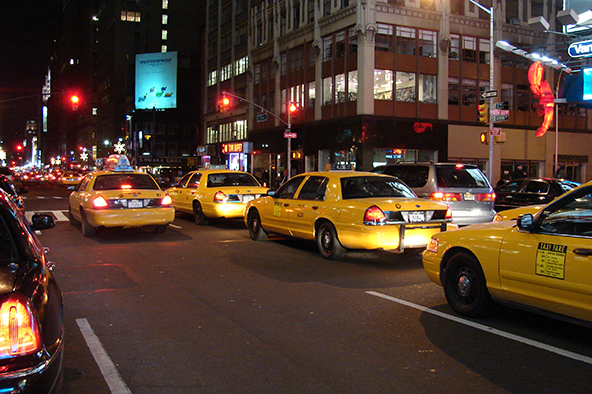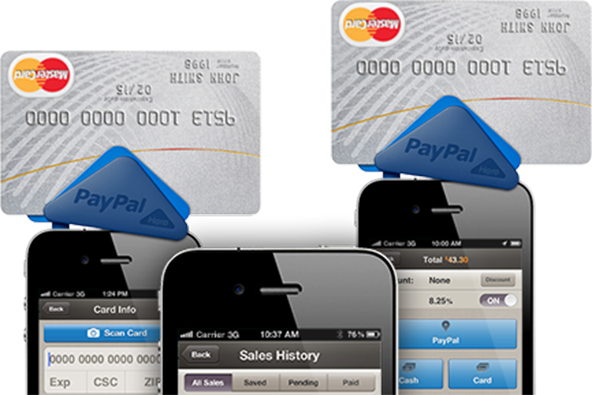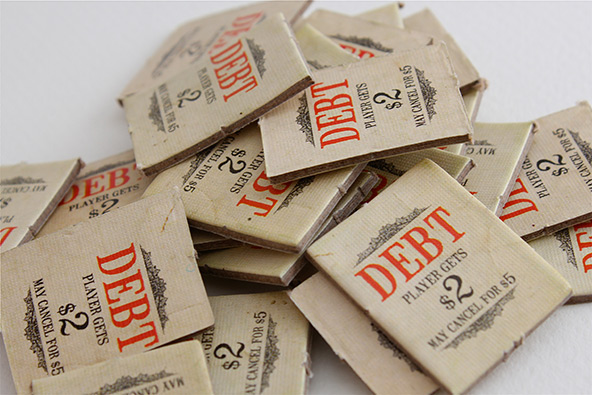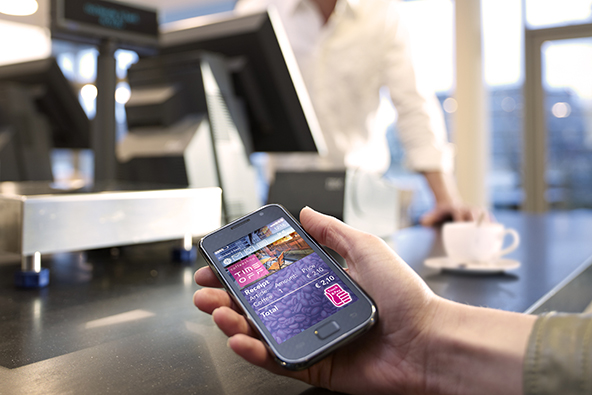Why Cab Drivers Hate Credit Cards, Christmas Edition

Back in early June we wrote about a Nevada Senate bill that was intended to collect $400,000 every six months from taxi companies operating in Clark County, which includes Las Vegas. The cab drivers of the nation’s casino capital were being penalized for charging additional $3 to customers who were paying their fares using a credit or debit card. At about the same time, San Francisco cab drivers were out in force protesting in the streets against a five-percent fee they were being charged for each card payment they accepted. Here in Boston last year taxi owners sued the city for $1 million over the requirement prohibiting them to operate their cabs, unless their point-of-sale (POS) terminal was operational.
The list goes on and I could add to it a clever ploy used by NYC cab drivers to “suggest” to customers that 30 percent is the “reasonable” tip rate for credit card payments. But the point is clear: cab drivers really, really don’t like credit cards (or debit cards, for that matter). I’ve been told that in person more than once and I’m sure many of you have heard it as well.
Well, this morning I read about the most recent development on that front. This one comes from Chicago, where taxi operators have “quietly” filed a proposal, which, among other things like penalizing riders for vomiting, aims to reimburse cab drivers for the expense of accepting bank cards, the Sun-Times tells us. I think that this latest expression of the taxi world’s displeasure with credit cards merits a revisit of the contentious subject.
What Do Chicago’s Cabbies Want?
The Sun-Times reports that cab drivers have filed a petition with the Chicago City Council, requesting that fares are raised by 22 percent and that a $1.50 charge is assessed to customers using bank cards for payment, the euphemistically called “convenience fee.” There is more:
Cabbies also want the city to impose a $1 fee for every additional passenger, a $50 fee for fraudulent credit card transactions and a $75 “cleanup fee” for inebriated passengers who lose their lunch in the back of a cab.
We are not told precisely who is to be assessed with the proposed $50 credit card fraud fee. After all, the passenger who fraudulently used the card is unlikely to be convinced to make good on his debt, not least because he is unlikely to be found. The authentic cardholder can hardly be expected to cover the loss either, so I really wish the newspaper gave us more details on that. But let’s take a look at the convenience fee.
The Convenience Fee Issue
So why do Chicago cabbies want to charge a convenience fee? The Sun-Times:
Budzynski [cabdriver Thaddeus Budzynski is the lead petitioner] justified the credit card fee on grounds that drivers who accept plastic get charged a 5 percent processing fee and lose time and fares doing it.
OK, a five percent card processing rate is truly exorbitant and cab drivers have every right to feel cheated and seek to be compensated for it. However, the focus of their outrage is misplaced and it is not their customers who should be footing the bill. Let me explain.
The typical rate for a card transaction processed at a taxi would hover around 1.7 percent plus $0.20 for credit cards, give or take, and could be lower for debit cards. That is what the payment processor would charge the cab company. However, the cab company charges its drivers five percent for the same transactions, as Budzynski testifies and as the SFGate reported earlier this year. The difference is collected by the cab company as profit. So it doesn’t seem right that the customer should be asked to pay for the cab company’s surcharge.
The Takeaway
Back in June we wrote that the five percent issue “is a case of self-inflicted pain” for the taxi industry. It is truly outrageous that cab drivers should be charged such a high card acceptance rate, right on par with semi-legal businesses that can only take cards through offshore processors, because no U.S. provider would work with them. Yet, the exorbitant fees are not their customers’ fault and the drivers should bring themselves to confront the real culprit here — the cab companies.
Image credit: Wikimedia Commons.



Taxi drivers in Chicago are not employees, nor are they independent contractors. Each one is a business licensed by the city of Chicago. That means that it’s on that *one* guy (or girl) to spend time at the affiliation’s card slip cashing location(s), which may not be either geographically convenient or open 24/7 to accommodate night drivers.
As for what Chicago cabbies want – maybe they just want the latitude that every other business licensed by the City has: to decide for themselves whether to accept credit cards as a form of payment, and then succeed or fail based on that and other business decisions.
The “real culprit” is still Chicago city government, because to compel acceptance of a third-party promise-to-pay as a condition of operating a business amounts to enacting a Legal Tender law (the language of the ordinance specifies credit cards or such vouchers as the City may issue.) Last I checked my Constitution, no State (and by inclusion, counties, municipalities, etc.) can make anything other than gold or silver a tender in payment for debts.
Steve,
I’m in an absolute agreement with you that taxi companies, and all other business types for that matter, should be left to decide on their own whether or not to accept credit cards and this should never be required by the government, local or otherwise. That said, it is a fact that cab drivers are charged exorbitantly high credit card processing rates by their taxi companies. No credit card processing provider that I know about would charge anything close to five percent for card-present credit card transactions.
I’m not sure what you mean by “the affiliation’s card slip cashing location(s)” and I wish you elaborated on it.
As a customer, I refuse to give cabbies a free pass on POS. it?ÇÖs the 21st century, credit/debit setups are easily available. You can even get ones that plug into your phone. Instead, they?ÇÖre using carbon copy sliders (really?!) and whining. Can license medallions are an incredibly valuable commodity. In return for having a license, they are asked to provide a reasonable level of service and convenience (especially when their industry involves picking customers who need a lift from God knows what corner). Instead of giving their customers a hard time, clean up the cab company and increase your efficiency and volume. stop whining about freedom of choice when the free market has clearly picked credit as king for sales.
Dan,
I agree, when it comes to credit cards, a cabby?ÇÖs biggest problem is his cab company, not his customers. What I don?ÇÖt know is how many cab drivers understand that.
The drivers understand very well, but they also understand that if they mention a word about it to the boss, they are fired.
Generally, the cab companies own all of those rare-asset licenses, and use them to engage in rent-seeking behavior against the drivers. Often, individuals who have nothing whatsoever to do with the taxi industry own those licenses and rent them out to companies, who then mark up that rental fee and force the drivers to pay the mark up. If the drivers were getting rich, they wouldn’t be working 12 hour shifts, 7 days a week.
In some cities the taxi companies charge the drivers TEN percent. This works out to the driver being docked over ONE THIRD of his pay, if the driver is lucky enough to normally enjoy a gross profit of 30 percent of receipts. Ten percent off the top, coming out of the driver’s 30 percent of receipts, leaves the driver 20 percent. How would you like to have your salary reduced by one-third simply because your customers couldn’t be bothered to pay cash?. A 5 percent credit card charge amounts to the driver being docked over one-sixth, enough to eradicate most “reasonable” gratuities.
Many drivers process their own credit cards these days, but if their cab company catches them, those drivers are summarily terminated. Why? Because they are depriving the company of their graft?
Dan really needs to try driving a cab once and see what it is like.
Given two different customers taking the same $6 trip with one person willing to carry cash and the other person insisting on credit, is it really fair for me to be paid 3% less for transporting the person who insists on using a card?
I’m working very hard pushing through traffic for 12 hours to provide a service that would be way more expensive if cab drivers had the same guaranteed hourly wage, benefits, and unemployment safety net that the average American worker has. If making an occasional trip to a bank or ATM to get some lightweight paper money is such an inconvenience than paying a small fee for the convenience of paying with a card and giving the driver a break on having to pay the fee for YOUR convenience himself is hardly unreasonable. It’s a big disappointment to be handed a card after working very hard to get someone where they need to go but being compensated for what it costs me to take the card would fix that.
If you take cabs often and know that it is much better for cab drivers to be paid cash, why not give us a break and pay cash?
I used to complain about a local cafe being backward for refusing to take cards until I found out how much of a burden of processing fees and waiting for deposits paying with cards imposes on the vendor.
Cards are great for mail order purchases but for in person transactions with people who work hard to provide you with quality goods and services why not use a method of payment that imposes the least extra cost on the vendor? It doesn’t cost you any more to pay with cash and it makes the transaction better for the person you are making the purchase from.
As for the vomit fee- If you throw up in my back seat, why should I not be compensated for the time I am unable to take paying customers while I am cleaning it up and for the unpleasantness of handling someone else’s vomit?
I have compassion for people who are sick for no fault of their own and I didn’t even think of charging when a little kid barfed in the cab, but I draw the line at drunks who chose to do something to make themselves sick.